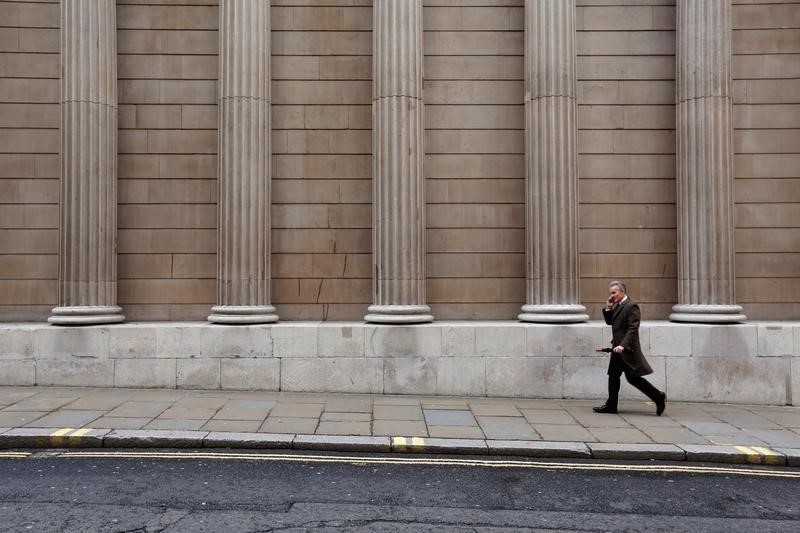By Ana Nicolaci da Costa
LONDON (Reuters) - Growth in Britain's dominant services industry slowed slightly in December, suggesting the economy expanded only modestly ahead of a new year in which it faces significant risks, a closely watched survey showed on Wednesday.
British economic growth slid to its joint-weakest in nearly three years in the three months to September, and financial data company Markit said its December survey of purchasing managers pointed to only a marginally faster expansion in late 2015.
The Markit/CIPS UK services purchasing managers' index edged down to 55.5 last month from 55.9 in November, broadly in line with economists' forecasts in a Reuters poll, while a broader composite measure dipped to a three-month low.
Markit lowered its estimate of fourth-quarter GDP growth to 0.5 percent from 0.6 percent a month ago, which compares with a sub-par 0.4 percent recorded in the third quarter of 2015.
"The relapse in the services PMI adds to evidence showing the recovery lost further momentum towards the end of 2015," Pantheon Macroeconomics chief UK economist Samuel Tombs said.
Financial markets showed little reaction to the news, which left Britain still in a better position than most of its euro zone peers.
Despite recent downward revisions to its growth numbers for 2015, Britain is expected to have headed the pack of major economies. But it has relied heavily on the services industry for growth, frustrating hopes for a more balanced recovery.
"The services sector remained the key driver of the UK's economic upturn ... (but) a rosy outlook is by no means assured," Markit's chief UK economist Chris Williamson said.
A solid measure of new business was offset by the weakest pace of job creation in the sector since July, while long-term expectations for business activity among firms were the lowest since 2013.
Williamson said factors such as government spending cuts, a potential interest rate hike, uncertainty about the global economy and the prospect of a referendum on Britain's membership of the European Union posed "significant downside risks" to economic growth this year.
The Bank of England is expected to raise interest rates in the second quarter of 2016, according to a Reuters poll of economists. But with inflation close to zero and earnings growth sluggish, it may find this difficult and financial markets only price in a move around the end of the year.
Input prices and prices charged rose marginally in December, the PMI survey showed, but were both below long-run averages.

Separate figures from the British Retail Consortium, also released on Wednesday, showed shop prices in December were 2.0 percent lower than a year earlier, almost matching November's joint-record 2.1 percent decline.